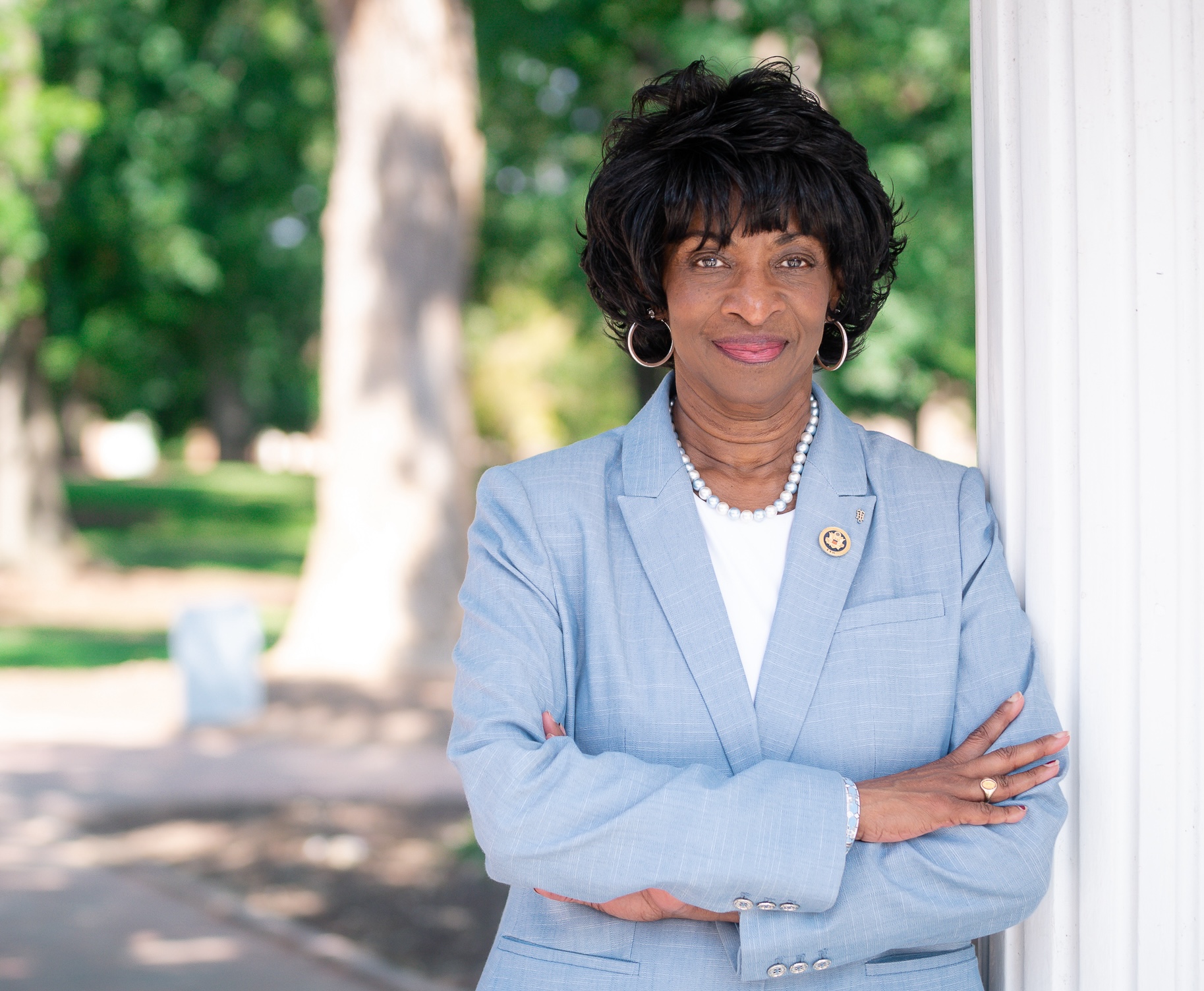One of the biggest stories of 2022 was the midterm election, which left the U.S. with a very divided Congress for the next two years – a narrow Democratic majority in the Senate, a narrow Republican majority in the House. It’s also bringing many new lawmakers to Congress – including locally, where State Senator Valerie Foushee won her bid to replace David Price in the U.S. House.
Those new legislators are entering a Congress that’s recently been characterized by dysfunction – but lawmakers were able to pass several big bills in the last two years. What might the next two years bring?
97.9 The Hill’s Aaron Keck spoke with UNC political scientist Sarah Treul, whose research focuses on Congress as an institution.
Aaron Keck: Knowing what you know about Congress: what have been your thoughts about the election and what it might mean for Congress as an institution in the coming years?
Sarah Treul: The first thing that comes to mind is just how close this election was. That slim (Republican U.S. House) majority is what’s on my mind as a scholar of Congress. And a lot of this is going to fluctuate over the next two years as people resign or retire. Illnesses, vacancies are very common in the House of Representatives. So when you’re looking at such a small majority, can things get done? Coupled with that is the problem that the Republican caucus has currently – and the Democratic caucus as well, but the Republican caucus in particular – it’s very divided. We spend a lot of time talking about polarization, differences between Republicans and Democrats – but when we go into those parties, that’s where I think things get really interesting. And within the Republican Party, there is a far-right faction that is not going to want to compromise, not going to want to work with the majority leader, not want to get things done, not want to spend money. And how can Kevin McCarthy, with such a small majority, actually accomplish the party’s goals?
Keck: I assume that affects which issues will get brought up in the next two years too.
Treul: Absolutely. It’s definitely going to affect agenda setting, what can come to the floor for a vote. And here, we’re going to see probably not a lot getting done. That’s been kind of a mantra of the Republican Party for the last several Congresses, and that makes a lot of sense with some of the conservative principles coming out of that party. “We want less spending, we want fewer bills passed.” At the same time, there’s some real, must-pass legislation that does have to happen, whether it’s appropriation bills, or funding the government, or raising the debt limit. And how the Republican Party can accomplish these tasks with such a small majority is going to be on the minds of any Congressional scholar – and should be on the minds of the general public as well.
Keck: There’s been so much talk about polarization leading to gridlock and an inability to pass bills – especially in the Senate where you’ve got the filibuster (and) you can’t get anything passed if you don’t have a 60-vote majority for one party. But the last two years seemed to be different: Congress passed a stimulus bill, an infrastructure bill, they just passed the same sex marriage bill, the climate bill, gun reform. But in the next two years, it’s going to be a divided couple of houses. So – how effective is Congress, as an institution in general, at getting things done?
Treul: By most metrics, Congress is not super-effective today. By comparison, if we go back to what scholars would call the textbook Congress era – I’m not even sure honestly what that means anymore, but it means going back to the 1960s and 70s, sort of the standard operating procedure that people learn about when they study U.S. institutions – it looks very different today. Things are not passed on time. Appropriation bills are not passed on time. We end up with a lot of omnibus legislation, which is where we just kind of throw everything in together. Instead of funding and passing a budget, we end up with continuing resolutions – or worse, shutting down the government for an extended period of time. These are all indicators that Congress itself as an institution is not functioning particularly well.
As a scholar of Congress, what I look to as one of the (causes) of this is the rise of these factions within the parties themselves. It’s people on the far left (and) the far right that have a very different agenda, generally speaking, than the moderates. They can often prevent their caucus from getting things done. And this is going to be precisely the Republican Party’s problem here going into the 118th Congress.
Keck: What fixes that? What pushes things the other way?
Treul: That’s often in the hands of the voter. We have a responsibility as voters – first of all to turn out and vote, but also to think, really carefully, about who it is we’re voting for and what their role in the institution (and) the party will be. That’s not to say you can’t have someone that has more extreme views on the left or on the right – but will they, at the end of the day, work together for the ultimate sacrifice of getting legislation passed and making the institution what it can be?
Keck: David Price just updated his book on Congress and he talks about the difference between “work horses” and “show horses”: work horses are the ones who actually get things done; show horses are the ones who are all over the news but don’t actually accomplish anything. Who came out on top in the last midterm?
Treul: More of what political scientists call “quality candidates” – candidates that come into the institution with prior legislative experience, prior experience in elective office – they won. They did pretty well. A lot of my research focuses on non-quality candidates, people who lack prior experience in elective office. The trend has been that those types of candidates have been on the rise, both on the left and on the right. And the problem with electing people that don’t have prior experience – not to say there aren’t good candidates out there, but they (often) don’t come in understanding how to put together an effective staff. How do you hire on Capitol Hill, what kind of policy expertise do you need? They might not have policy expertise themselves. They don’t understand how a bill becomes a law, in the negotiating, compromising parts of the process that are so important.
And so when we ask if work horses or show horses had a better election year, I think the work horses had a pretty good year. (But) it’ll be interesting to see: are they able to get things done? And that takes us back to that small majority. The Republican Party might have more work horses, but they still have some pretty big show horses on the right, that are going to make it really challenging for the party leadership to be effective.
Keck: In terms of inexperienced candidates being on the rise: is that something that we’ve seen in the past at any time? Or is this a new, new thing?
Treul: This is pretty much a new thing. My research generally goes back to 1980, tracking the rise of inexperienced candidates to Congress. What we first saw was Republicans sending inexperienced candidates, starting in about 2010 with the Tea Party movement – though a lot of Tea Party candidates were (still) quality candidates – then Democrats kind of picked up on this a little bit later, around 2018.
Now, I also want to note: one piece of silver lining for inexperienced candidates is that they tend to diversify Congress as well. A lot of the people who come in with a lack of experience bring to the table different kinds of qualities, different things that we think of as positive when considering representation.
Keck: Right – you’ve written about female representation, LGBTQ representation, working-class representation.
Treul: All those things, right? And as inexperienced candidates come in, they tend to check more of those boxes.
Keck: We’ve talked a lot about how local elections are being nationalized: whichever party you like on the national level, you’re going to vote for that party all the way down. But some of your research has gone the other way: you’ve talked about how state-level politics and government influence what’s going on in Congress. What should we know about that?
Treul: It is the case that what’s happening in states can influence Congress, and I think we’re seeing more people starting to pay attention to what’s going on in states, for all the right reasons. States are one of the places where you really actually do have some power and you do have some control: especially as a voter, your vote’s simply going to matter more, and that’s true all the way down to your local school board election. And we can learn a lot by turning to our state legislatures, thinking about what they’re working on (and) how that’s going to affect decisions in Congress. Now as you noted, we still see most people casting straight-ticket ballots – but elections are becoming much more local as people tune in to their own districts (and) think about what their district needs. That’s the positive part – (but) the reason for that is often gerrymandering, which makes (individual) districts look much less like the nation as a whole.
Keck: You’re an expert on Congress, but you’re also a resident of this country who wants to see Congress succeed. What makes you optimistic, and what are you concerned about?
Treul: I’m concerned about Congress as an institution being respected and working across the aisle. And by that, I mean I think Congress itself really needs to find ways to be bipartisan. I say that a little bit lightly, because there’s tons of bipartisan legislation that passes all the time. It’s just not the hot-ticket items. So I would like Congress to come up with ways that there can be more negotiation, more compromise.
And I think this will be a big test here in the 118th Congress, as again, we see this slim U.S. House majority. Republicans are going to need moderate Democrats. They’re going to need to work with Democrats if they’re going to accomplish things. Now, what does that do to the far right? How angry does the House Freedom Caucus get in response to that? Does Kevin McCarthy even have the votes to be speaker? We’ll see. But those are the kinds of things that I really hope we can focus on. As a voter, I want someone who’s moderate, someone who’s willing to work with the party, even if they have more progressive views or more conservative views, someone who’s going to come in and say “it’s not about me, it’s about the institution.”
Chapelboro.com does not charge subscription fees, and you can directly support our efforts in local journalism here. Want more of what you see on Chapelboro? Let us bring free local news and community information to you by signing up for our biweekly newsletter.








